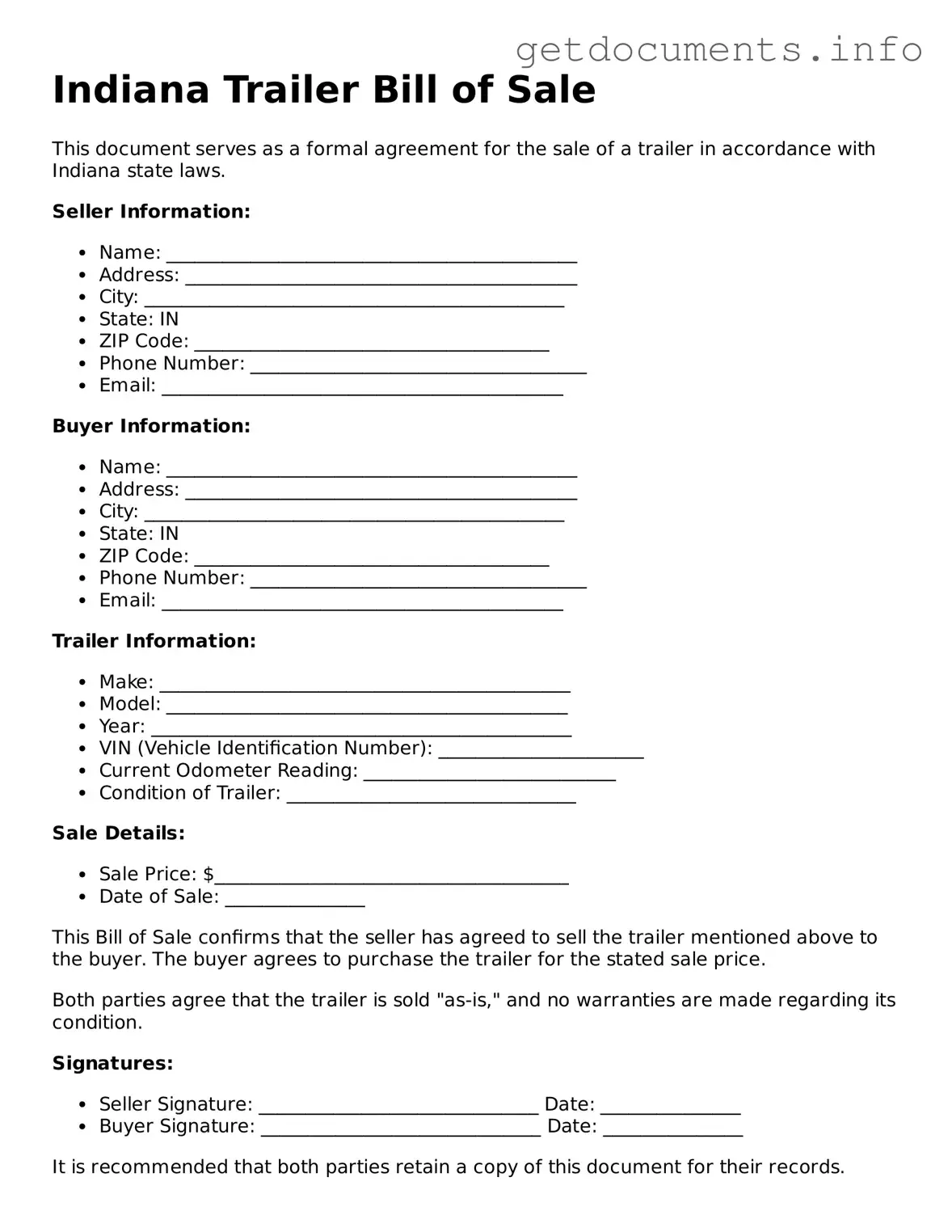Free Trailer Bill of Sale Template for Indiana
The Indiana Trailer Bill of Sale form is a legal document that records the sale and transfer of ownership of a trailer in the state of Indiana. This form protects both the buyer and the seller by clearly outlining the details of the transaction. To ensure a smooth transfer, it's important to fill out the form accurately; start by clicking the button below.
Access Trailer Bill of Sale Editor

Free Trailer Bill of Sale Template for Indiana
Access Trailer Bill of Sale Editor
Got places to be? Complete the form fast
Fill out Trailer Bill of Sale online and avoid printing or scanning.
Access Trailer Bill of Sale Editor
or
⇩ PDF File
